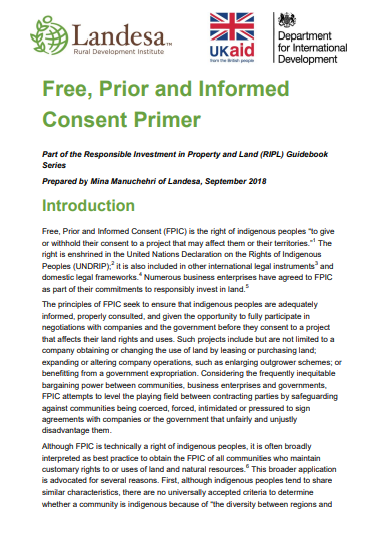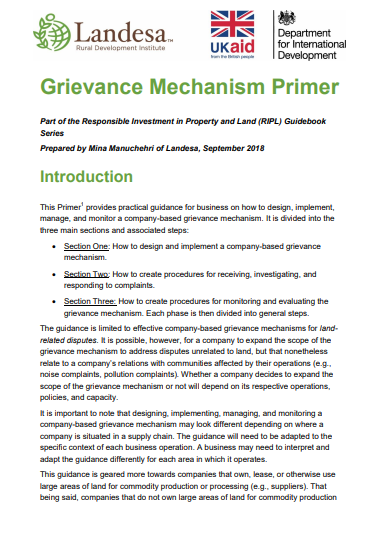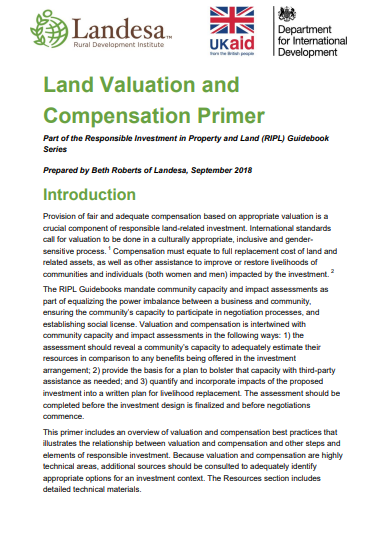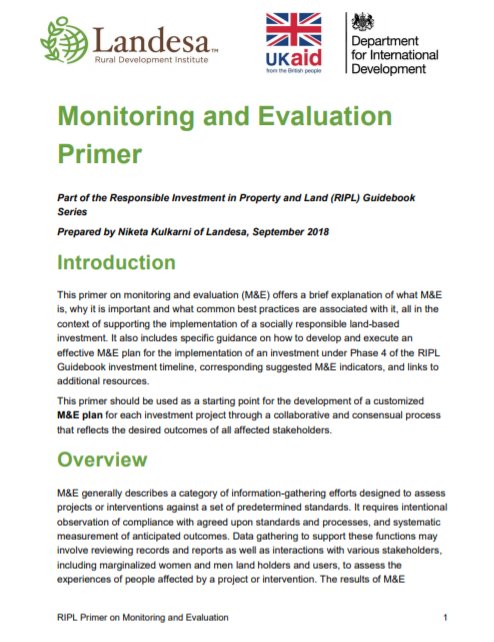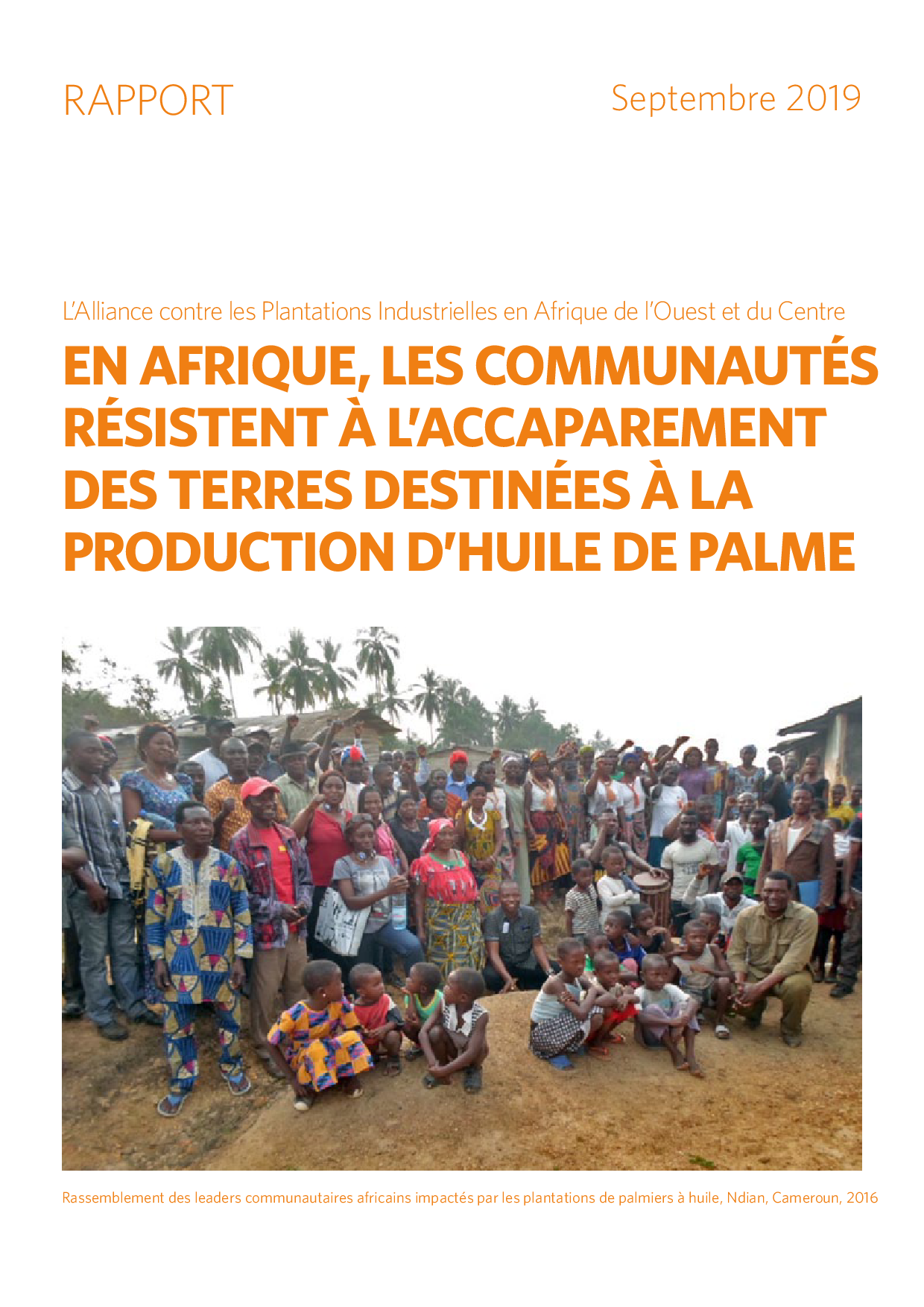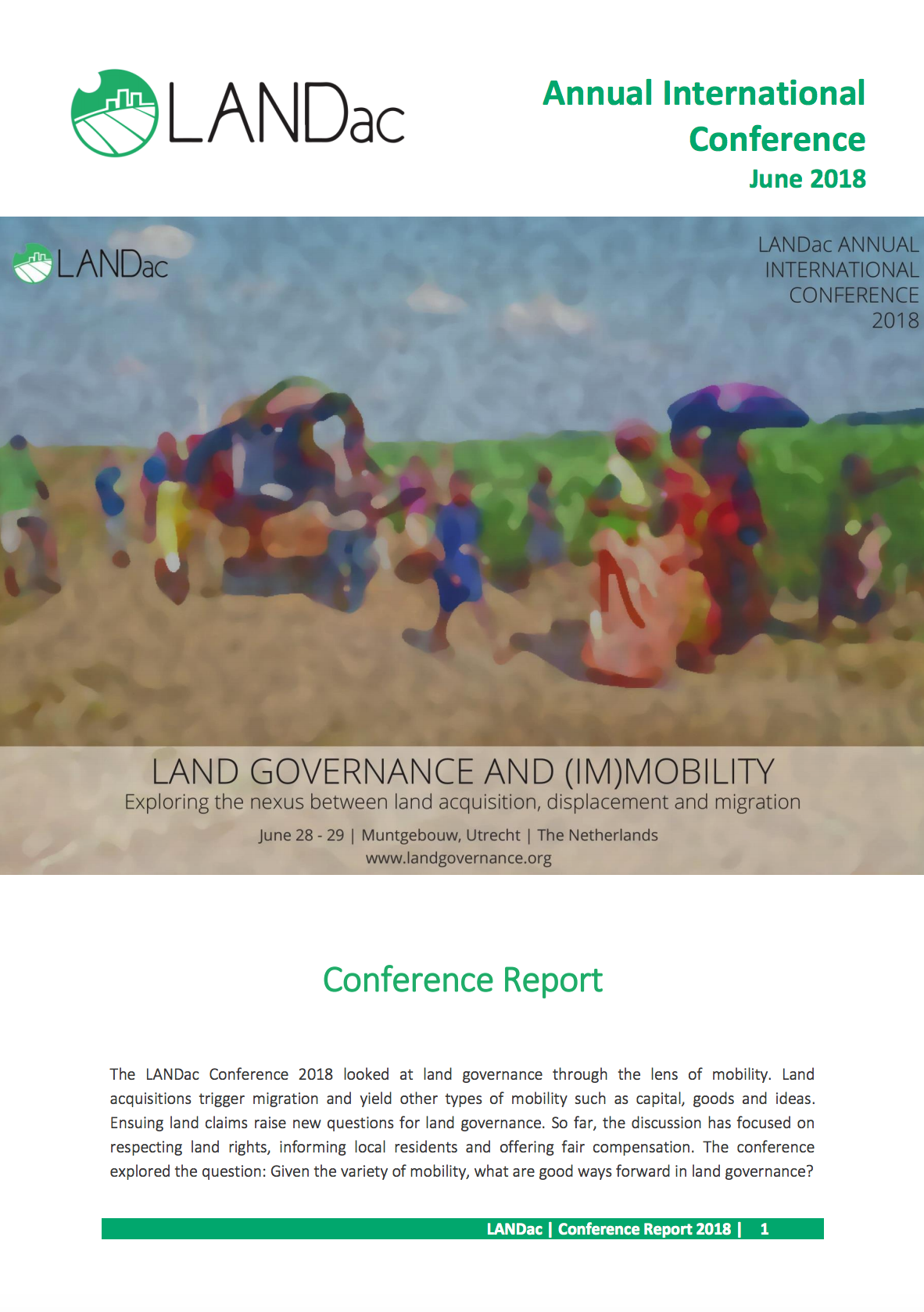Vulnerable Groups Primer (Responsible Investment in Property and Land (RIPL) Guidebook Series)
This primer provides guidance for including and protecting vulnerable groups in the context of a land-based investment. It outlines the importance of identifying and engaging with vulnerable groups, who often have weak claims to land rights and are particularly susceptible to negative impacts from changes in land use. It provides
• an overview of who may qualify for inclusion in a vulnerable group and descriptions of specific vulnerable groups, and
• step-by-step guidance for governments, business, and communities..

